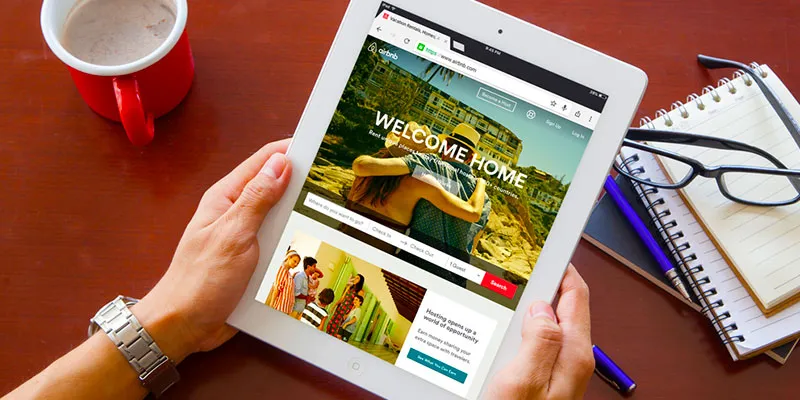How the hospitality industry can benefit from online marketing
Hotel chains have made significant headway into the online sphere with the help of social media and online advertising. With the hospitality industry facing disruption from online competitors such as AirBnB (#LiveThere), major hotel chains are facing increasing downtime and are using digital marketing initiatives to boost their booking rate. The luxury hotel chains are now beginning to understand the need for good content marketing, while the mid-size ones are leveraging a tactical approach with email marketing, online ads, and quick lead generation-focused marketing.

Image : shutterstock
Whether it’s Taj Vivanta, Trident, JW Marriott, or any of the ultra-chains of hotels in India, they are all using social media in some way, shape, or form. Content marketing focusing on events happening across cities has potential, as does creating great content around the facilities, the brand, and staff members.
Similar to how other industries leverage social media, the hospitality industry focuses on creating great online experiences for their visitors and fans, giving passive passersby incentives to like, share, and comment. Influencer marketing and blogger engagements have been utilised for many years, with JW Marriott providing accommodations to Bruised Passport for their travels across India.
Hotel chains needs to continuously focus on customer experiences in order to benefit from the effects of network scale. Without the desire created to stay at their resorts/locations, there is no need for a customer to stray from her path. For example, a business traveler or a bride on the lookout for a destination wedding will consider cost to be the major factor. However, if the businessman or the bride sees the multiple amenities on Facebook, and can save time by browsing through the many features of the hotel, they will both benefit from the information available to make an informed decision that is a win-win.
Regardless of the size of the hotel chain, they haven’t really used social media to the fullest. By simply sharing pictures and short videos, there really isn’t a great impact created through this medium. That is because of the nascent nature of the space in the industry. Many players continue to focus on traditional mechanisms of customer acquisition, and spend more money in direct sales and lead generation rather than a brand-first approach. It’s a sales v/s marketing dilemma, where sales is winning in the short-term. However, there is nothing unique about any services or brand positioning in the marketplace, which means that customers will easily switch over if a true brand experience isn’t created.
With an aspiration-focused ad campaign, Shangri La’s Mactan Resorts received a hundredfold return on their ad spends and saw a fivefold jump in room bookings because of social media content and advertising. They specifically targeted the destination as a focal point, and lured tourists to book now (within a timeline parameter) while their competitors simply showcased their deals and prices. Adding an experiential dynamic to social media helped Shangi La reap benefits far beyond their targets.
Hotel brands in India need a makeover, similar to many other industries. There was a huge spike in activity in hotel chain branding a few years ago, but it has died out due to restrains and tight budgets. However, the core culture of the hotel can still be effectively marketed. If social media were to help me virtually arrive at my destination and be greeted with smiles and water, it would make me choose a certain hotel chain over another. Families are always seeking special benefits, and so are ladies who are on a kitty-vacation. There are many groups that a hotel chain caters to, and satisfying their needs via social media is paramount to their success.
Hotels need to execute effectively when it comes to social media and online marketing. There needs to be a ground-up philosophy to create brand experiences and marketing initiatives instead of simply going for the bottom line.







